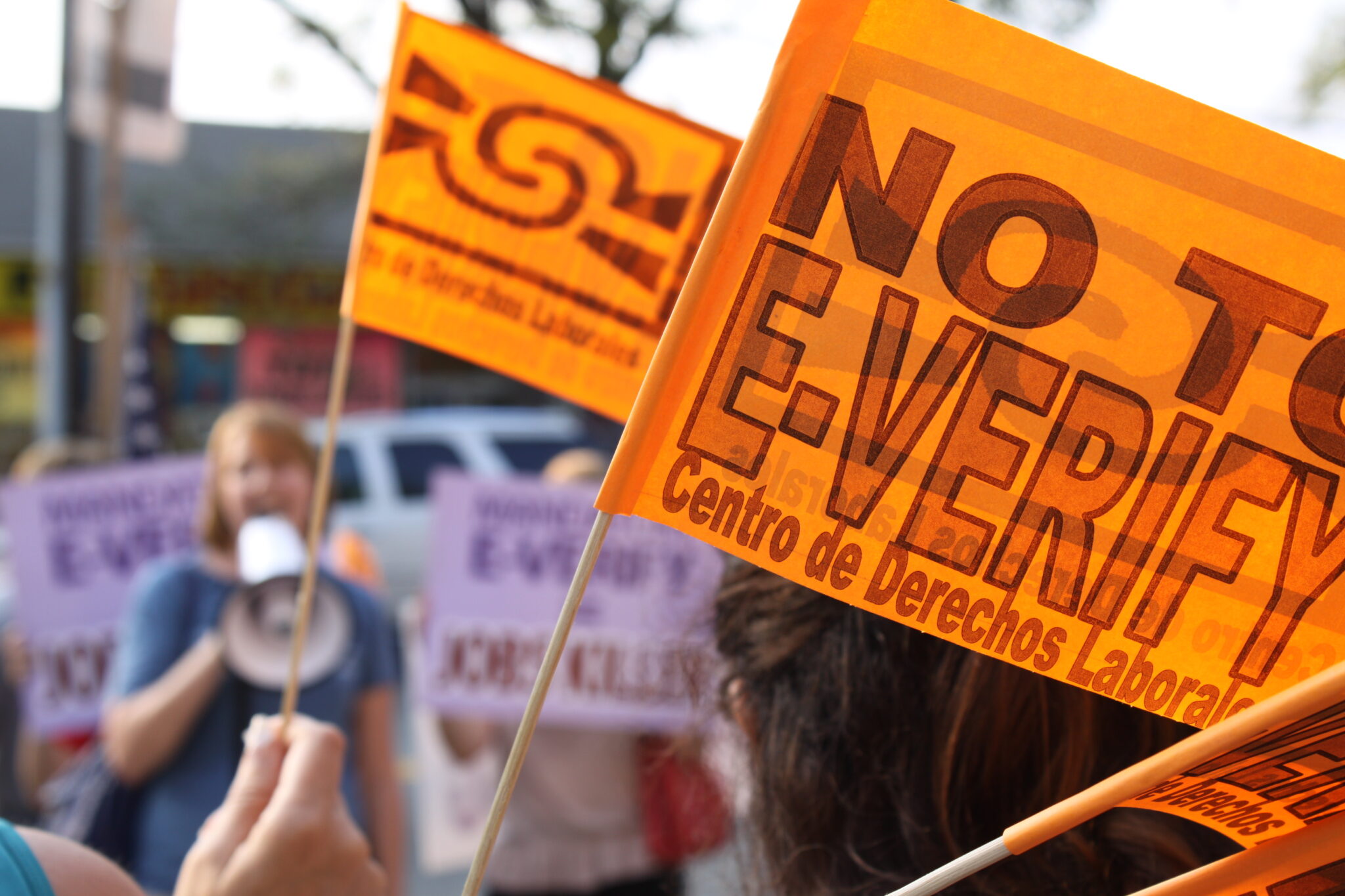
Ted Parker is a student at Harvard Law School and a member of the Labor and Employment Lab.
In today’s news and commentary, state legislatures across the country consider E-Verify bills that would hurt undocumented workers, and the Equal Employment Opportunity Commission (EEOC) shows it will continue to enforce the Pregnant Workers Fairness Act (PWFA), though pressure points remain untested.
Reporting in Bloomberg draws together the efforts of legislatures in more than a dozen states to mandate heightened employer use of the federal E-Verify system. Currently, the federal government requires all employers to check their employees’ identity and employment authorization documents when filling out an I-9 form but not to confirm that authorization through E-Verify. Federal efforts to mandate E-Verify have mostly reached only federal employees and federal contractors. States like Florida, Texas, and Idaho are now targeting private-sector employees through a variety of bills. This crackdown is especially concerning in light of the Trump administration’s plan to cancel Temporary Protected Status for Haitian and Venezuelan refugees, which could leave more than half a million workers without employment authorization. Some of these bills have already failed (as in New Hampshire, Kansas, and Kentucky), potentially because of employer opposition.
The EEOC announced on Thursday that Kurt Bluemel, Inc., defendant in a pregnancy discrimination lawsuit filed by the agency in September 2024, has agreed to settle. The Maryland plant nursery is alleged to have discriminated against a worker attempting to return from maternity leave only to be told that no work was available for her. Now, the employer will pay the worker $40,000 and notify other workers of its violation and their rights. An attorney with the agency announced, “The EEOC will continue to enforce this vital federal law,” referring to the PWFA. The EEOC’s enforcement of the PWFA has been uncertain since Acting Chair Andrea R. Lucas reiterated her previous opposition to the agency’s 2024 PWFA regulations, which she criticizes as an overbroad implementation of the Act. Without a quorum, the regulations cannot be rescinded or modified. This and other cases show that the EEOC will continue to enforce at least parts of the PWFA regulations. Notably, all these cases involved people who were actually pregnant, meaning they did not test the zone of “overbroad” application that Acting Chair Lucas opposes.






Daily News & Commentary
Start your day with our roundup of the latest labor developments. See all
February 17
San Francisco teachers’ strike ends; EEOC releases new guidance on telework; NFL must litigate discrimination and retaliation claims.
February 16
BLS releases jobs data; ILO hosts conference on child labor.
February 15
The Office of Personnel Management directs federal agencies to terminate their collective bargaining agreements, and Indian farmworkers engage in a one-day strike to protest a trade deal with the United States.
February 13
Sex workers in Nevada fight to become the nation’s first to unionize; industry groups push NLRB to establish a more business-friendly test for independent contractor status; and UFCW launches an anti-AI price setting in grocery store campaign.
February 12
Teamsters sue UPS over buyout program; flight attendants and pilots call for leadership change at American Airlines; and Argentina considers major labor reforms despite forceful opposition.
February 11
Hollywood begins negotiations for a new labor agreement with writers and actors; the EEOC launches an investigation into Nike’s DEI programs and potential discrimination against white workers; and Mayor Mamdani circulates a memo regarding the city’s Economic Development Corporation.